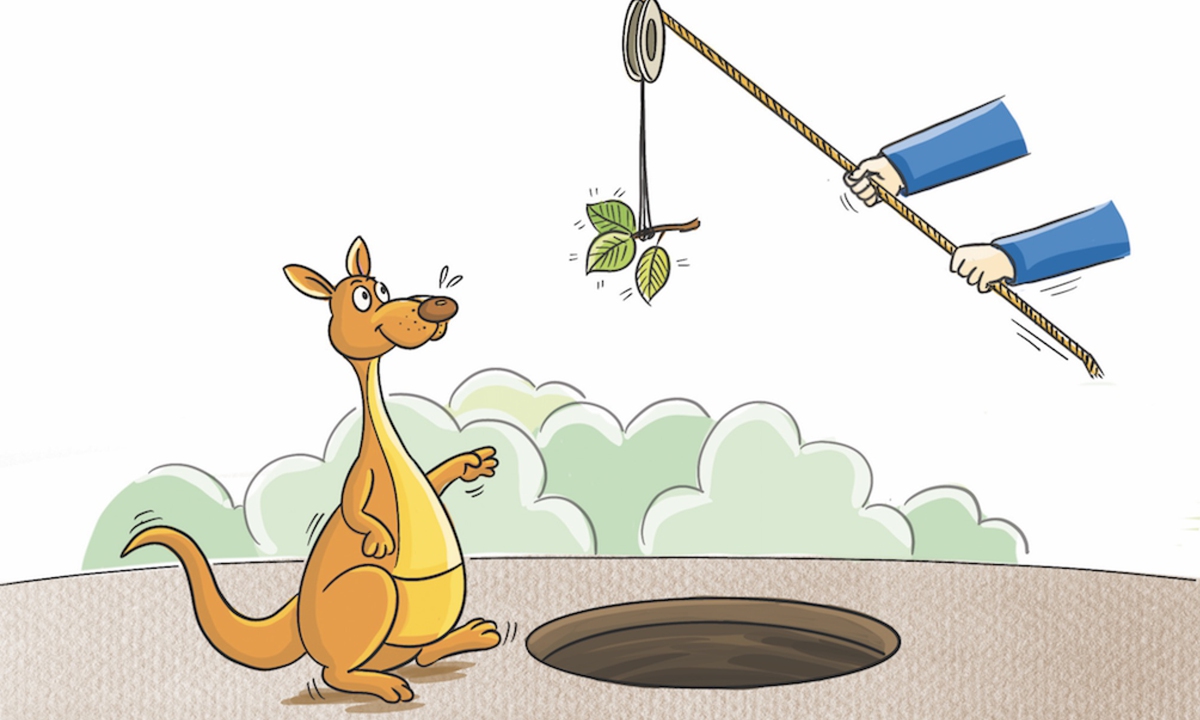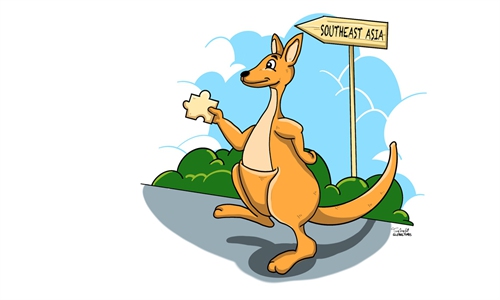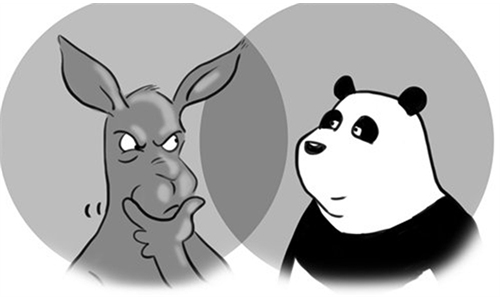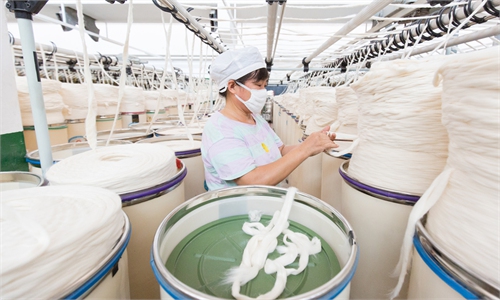COMMENTS / EXPERT ASSESSMENT
‘Trade war’ hype will only worsen Australia’s recession

Illustration: Xia Qing/GT
After the hype surrounding a rumoured "coal import ban", Australian media outlets are now stirring up market concerns over another commodity - cotton. As a result of such speculation, some Western media outlets have even began pedaling a "shadow trade war" theory.
Such groundless speculation by Western media outlets is a clear reflection of the Morrison Government's hostility toward China and its attempt to push China to import more Australia cotton.
Australian Trade Minister Simon Birmingham on Friday groundlessly accused China of using "discriminatory actions" against Australian cotton producers. However, as one of the world's major cotton importers, China has simply continued to select the best prices available in the international market and does not discriminate against Australia cotton.
In fact, exports of American and Australian agricultural products such as wheat, beef and cotton face fierce competition in the global market. Australian farmers have long been dissatisfied with the US' government subsidies, decrying unfair competition and demanding that their government negotiate with the US, but the Australian government has never dared ask the US, and the US in turn ignored the protests of the Australian people.
Although China has a vast market, Australia is not its main supplier. Without the Chinese market, farmers and employees in Australia will be affected, but this is the result of market competition. When China-Australia relations return to normal, China will consider more of Australia's interests, but at present it is about market allocation.
The recent hype of the "shadow trade war" in Western media outlets has occurred in the context of the COVID-19 pandemic and its impact on global economy. Against the backdrop of the US and Australia's decoupling and semi-decoupling tactics, China's economy has endured the virus and become the only major economy in the world to achieve growth.
The Chinese economy bounced back into positive territory - growing 0.7 percent - in the first three quarters of the year after the country has put COVID-19 epidemic under control, official data showed on Monday.
China's GDP in the third quarter expanded 4.9 percent year-on-year, as the country's economic recovery accelerates amid recovering domestic consumption, better-than-expected exports and improving investments.
From China's perspective, the so-called shadow trade war does not exist. China is only making industry adjustments according to market rules. In the absence any goodwill on Australia's part to improve bilateral relations, China should maintain its strategic determination and not rush to improve the trade status quo. China should use this opportunity to remove any risks in China-Australia relations, and made preparations for any potential improvements in bilateral relationships that may occur in the middle or the second half of next year.
In sharp contrast with China's economic situation, Australia's economy is facing great difficulties. Australia's economy has plunged into its first recession in nearly 30 years thanks to the economic fallout of the pandemic, according to media reports.
In early September, Australian Bureau Statistics figures showed that the nation's GDP shrank 7 percent over the June quarter, which represents the biggest fall since records began back in 1959 and the second consecutive quarterly contraction in GDP. This is the worst economic growth in 61 years, and follows a 0.3 percent decline in GDP across the March quarter.
In the recently released International Monetary Fund (IMF) world economic outlook, the fund said it expects the Australian economy to contract by 4.2 percent this year.
Whether it's a coal import ban or cotton tariffs, such speculation is rooted in Australia's own hostility toward China. The Australian government may have foreseen the impact on bilateral trade emerging from its deteriorating relations with China, and essentially decided to sacrifice agricultural trade and education exchange when it followed the US in confronting China.
However, facing an economic contraction, soaring unemployment and a depressed stock and housing market, the Australian government should not hype a "shadow trade war", but rather should respect the facts and reflect more deeply on its China policy.
The author is a chief research fellow at the Research Center for Pacific Island Countries, Liaocheng University, and a research fellow at the Australian Studies Center at Beijing Foreign Studies University. bizopinion@globaltimes.com.cn



